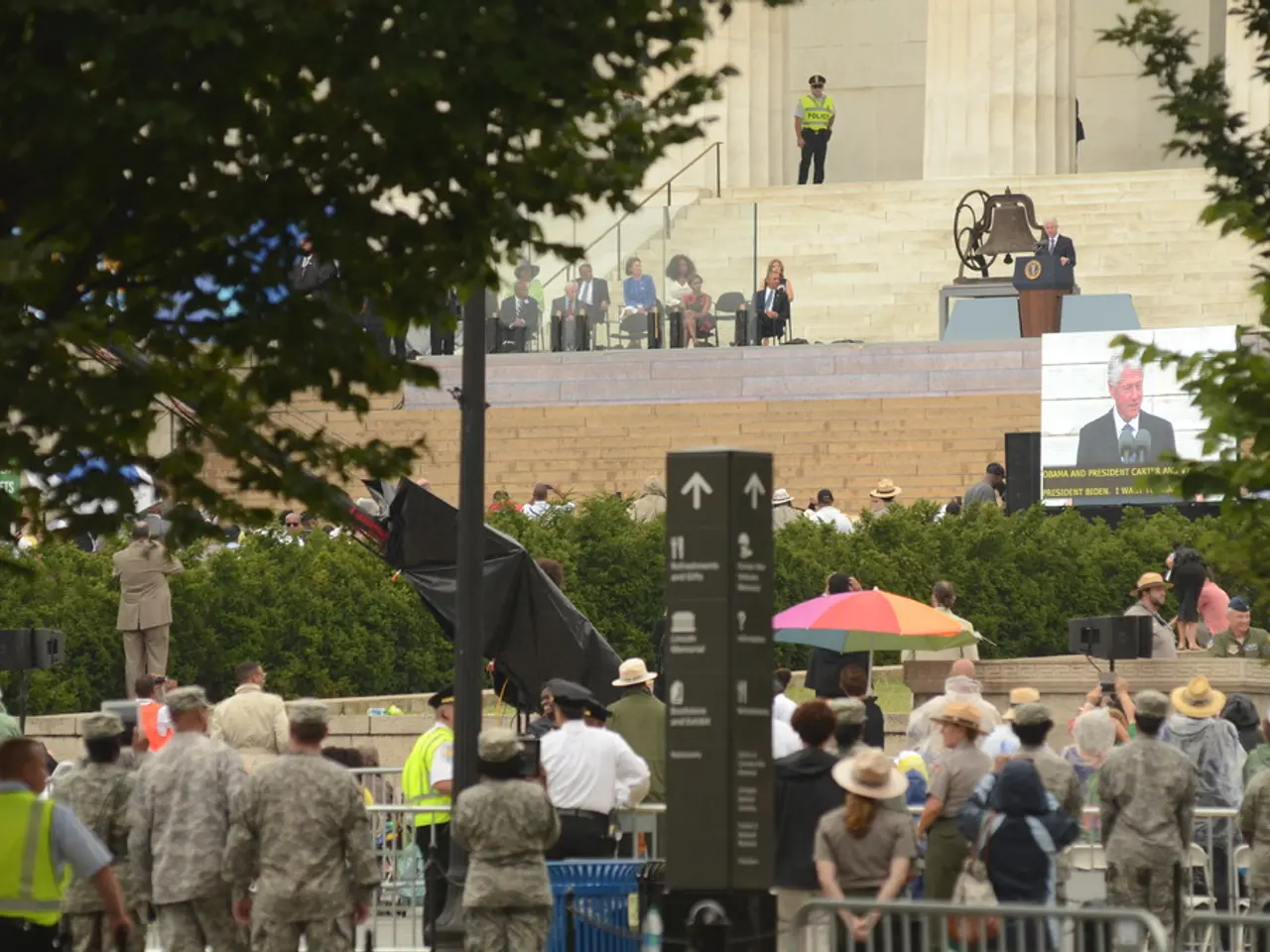Court in Jammu and Kashmir Petitions Ministry of Home Affairs to Reinstate Deported Spouse of Kashmiri Individual from Pakistan
Jammu and Kashmir High Court Order Halts Mass Deportations
In the aftermath of the Pahalgam terror attack that left 26 lives in tatters, the Indian government enacted a broad mass deportation campaign targeting individuals of Pakistani origin or connection, including the spouses of former militants who had migrated to Jammu and Kashmir under past rehabilitation policies. Yet, unbeknownst to this aggressive action, a 63-year-old woman named Rakshanda Rashid found herself caught in the maelstrom.
Having resided in India for three decades on a long-term visa (LTV), Rashid's expulsion to Pakistan threatened to shatter her fragile existence. Her husband, Sheikh Zahoor Ahmed, petitioned the court for her return, seeking relief for her grave health condition with no family support in the foreign land.
In an unprecedented ruling, the Jammu and Kashmir and Ladakh High Court, led by Justice Rahul Bharti, ordered the Ministry of Home Affairs (MHA) to facilitate Rashid's return from Pakistan within ten days and to file a compliance report by July 1. This judicial intervention was driven by a profound conviction in the prioritization of human rights and the necessity for swift, compassionate action in distressing circumstances.
Questioning the permissibility of such deportations, the Court criticized the lack of proper examination of Rashid's visa status and evident neglect of her individual circumstances. Recognizing the case as exceptional and deserving immediate redressal, the Court underscored the paramount importance of life and dignity in such tumultuous times.
This legal challenge marks a significant pushback against the government's mass expulsion campaign. It sets a potential precedent for other individuals affected by the campaign, putting a spotlight on the urgency for due process, legal protections, and individualized case assessments in sensitive contexts.
Critics have lambasted the government's actions for their lack of due process, questioning the speed at which these orders were handed down and the consequences of forcibly separating families and disrupting lives. As the implications of this landmark ruling unfold, it remains to be seen whether the government will re-examine its deportation procedures to ensure compliance with constitutional protections and humanitarian norms.
Amidst the ongoing chaos and uncertainty, Rashid's case offers a glimmer of hope for those whose lives hang in the balance following the government's sweeping actions. Should the High Court's ruling stand, it may pave the way for the preservation of human rights and dignity in the contentious region of Jammu and Kashmir.
- The ruling by the Jammu and Kashmir High Court, which orders the ministry to facilitate Rashid's return from Pakistan, questions the government's policy on war-and-conflicts and its mass deportations, and could lead to policy-and-legislation changes regarding immigration and human rights.
- The critical response to the government's mass deportation campaign, highlighted by Rakshanda Rashid's case, underscores the need for due process and individualized case assessments in war-and-conflicts situations, respectively, as part of general-news discussions on politics and human rights.





